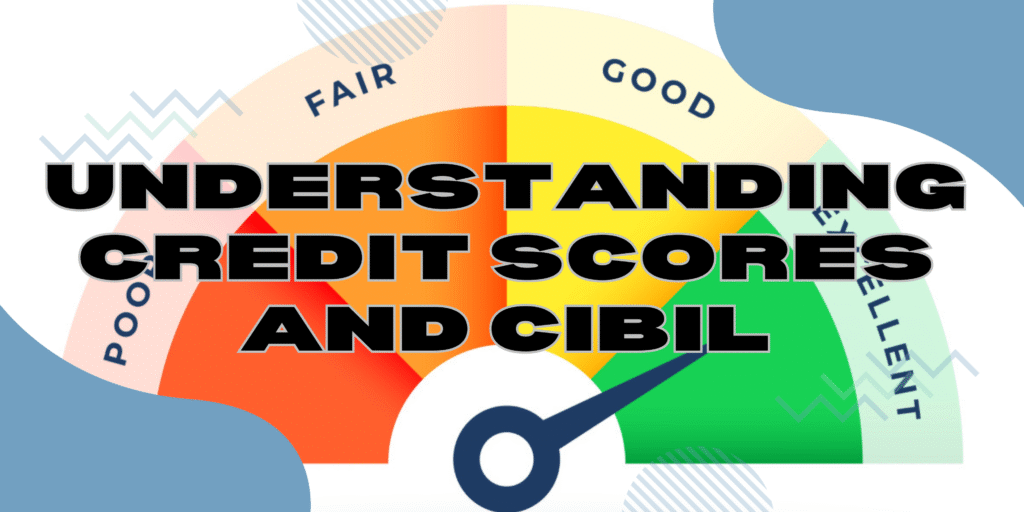A credit score is a 3-digit number (between 300 to 900) that tells banks and lenders how trustworthy you are with credit — like loans, credit cards, EMIs, and more.
In simple words: it answers the question — “If we lend this person money, will they pay it back on time?”
In India, the most popular credit score is given by CIBIL (Credit Information Bureau of India Limited). Other bureaus like Experian, Equifax, and CRIF High Mark also provide scores, but CIBIL is the most widely used.
Why Is Your Credit Score Important?
A good credit score means:
- Easy loan approvals (home loans, personal loans, car loans)
- Lower interest rates
- Higher credit card limits
- Better chances to get pre-approved offers
- Ability to negotiate loan terms
A poor score can lead to:
- Loan rejections
- Higher interest rates
- Rejected credit card applications
What Is a Good Credit Score?
| Score Range | What It Means |
|---|---|
| 750 – 900 | Excellent |
| 700 – 749 | Good |
| 650 – 699 | Fair |
| 550 – 649 | Poor |
| 300 – 549 | Very Poor |
| NA/NH | No Credit History |
If you’re new to credit, your report may show NA (Not Applicable) or NH (No History). That’s okay — you can build your score from scratch.
How Is the CIBIL Score Calculated?
The exact formula is not public, but here are the key factors and their approximate weightage:
1. Payment History (35%)
Do you pay EMIs and credit card bills on time? Even one late payment can lower your score.
2. Credit Utilization (30%)
This is how much of your credit limit you’re using. Keep your credit card usage below 30% of the total limit.
3. Credit History Length (15%)
Older accounts show long-term financial behavior. The longer your credit history, the better.
4. Credit Mix (10%)
A good mix of secured (home/car loan) and unsecured (credit card/personal loan) credit improves your profile.
5. Recent Credit Activity (10%)
Too many applications in a short time can signal financial stress and lower your score.
How Long Does It Take to Build or Improve a Credit Score?
- New to credit? You’ll need 3–6 months of activity to build a score.
- Trying to improve? It may take 6–12 months, depending on your current situation.
- Missed payments or defaults? Negative marks can stay on your report for up to 7 years, but their impact reduces over time.
How Often Does the CIBIL Score Update?
CIBIL updates scores every 30 to 45 days, based on the data it receives from banks and NBFCs.
If you’ve paid off a big loan or cleared a credit card, wait a few weeks to see the updated score.
How to Check Your CIBIL Score for Free
You can check your score once a year for free at the official website:
- Visit cibil.com
- Click on “Get Your Free CIBIL Score”
- Enter PAN, phone, and email
- Answer some ID verification questions
- Access your report
You can also check your score via:
- Banking apps (HDFC, ICICI, Axis, etc.)
- Apps like Paytm, CRED, PaisaBazaar, BankBazaar
Common Mistakes That Hurt Your Credit Score
- Missing credit card or EMI payments
- Maxing out your credit card limits
- Applying for multiple loans/cards in a short period
- Closing old credit cards (hurts credit age)
- Not having any credit history at all
How to Improve or Build a Good Credit Score
- Pay all EMIs and bills on time
- Keep your credit card usage below 30% of the limit
- Limit new loan or credit card applications
- Start with a secured credit card if you’re new or have a poor score
- Check your report every 6 months for errors
- Keep your oldest accounts open (if in good standing)
How Long Do Past Mistakes Stay on Your Report?
| Mistake | Stays On Report For |
|---|---|
| Late payments | Up to 3 years |
| Loan default/write-off | Up to 7 years |
| Multiple hard enquiries | 6 to 12 months |
| Loan or credit card settlement | 7 years |
Note: While they stay on the report, the negative impact reduces over time with regular, on-time payments.
Final Thoughts
Understanding your credit score isn’t about being perfect — it’s about being responsible. A good score makes life easier, especially when applying for loans, EMIs, or credit cards.
If you’re starting fresh, build a good foundation now. If you’ve made mistakes, you can fix them with consistent habits.
A good credit score isn’t built in a day, but it’s one of the most powerful tools in your personal finance journey.
Quick Recap:
| What You Need to Know | Summary |
|---|---|
| Best score range | 750–900 is excellent |
| Who provides it | CIBIL (and other bureaus) |
| Key factors | Payment history, credit usage, credit age, mix, and activity |
| Updates | Every 30 to 45 days |
| Check score | Free on cibil.com and other apps |
| How to improve | Pay on time, keep usage low, apply less often |
Want help with understanding your own credit report or how to fix errors? Email us at myfirstlakh@gmail.com.

